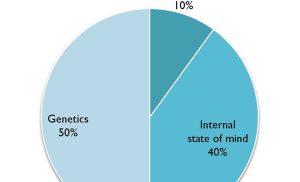How Can I Maintain My Self-care Routine During Times Of Crisis Or Major Life Changes?
In times of crisis or major life changes, maintaining a self-care routine is crucial to ensure your well-being and resilience. From unexpected job losses to the loss of a loved one, these challenges can easily disrupt our daily habits and leave us feeling overwhelmed. However, amidst the chaos, it is important to carve out time for yourself and prioritize self-care practices that nurture your mind, body, and soul. In this article, we will explore effective strategies and practical tips to help you maintain your self-care routine, even during the most challenging times. So, let’s dive in and discover how you can navigate through these difficult periods while still prioritizing your self-care needs.

Set Priorities
Identify essential self-care practices
When facing a crisis or major life change, it becomes even more crucial to identify and prioritize your essential self-care practices. Take some time to think about what activities or behaviors nourish your well-being and provide you with a sense of balance and fulfillment. These may include exercise, spending time in nature, practicing mindfulness, engaging in hobbies or creative outlets, or simply taking moments for relaxation and self-reflection. By recognizing and focusing on these essential self-care practices, you can lay the foundation for maintaining your overall well-being during challenging times.
Determine non-negotiables
In order to maintain your self-care routine during times of crisis or major life changes, it’s essential to determine your non-negotiables. These are the self-care activities that you are committed to prioritizing, regardless of the circumstances. Reflect on what aspects of self-care are non-negotiable for you and make a firm commitment to yourself to ensure that these practices remain a consistent part of your routine. By establishing non-negotiables, you create a sense of stability and structure that can help you navigate through difficult times with greater resilience.
Recognize adaptability
While it’s important to establish priorities and non-negotiables in your self-care routine, it’s equally important to recognize the need for adaptability. In times of crisis or major life changes, things may not go according to plan, and it’s crucial to be open to adjusting and modifying your self-care practices as necessary. Remain flexible and willing to explore alternative self-care strategies that may better suit your current circumstances. Recognize that adaptability is a key component of maintaining your self-care routine during times of upheaval, and be kind to yourself as you navigate through these changes.
Establish a Support System
Reach out to friends and family
During times of crisis or major life changes, it’s important to lean on your support system. Reach out to friends and family members who you trust and feel comfortable confiding in. Share your feelings, thoughts, and concerns with them, as the act of expressing yourself can be incredibly therapeutic. Your loved ones can provide a listening ear, offer guidance, and remind you that you are not alone. By nurturing these connections, you can establish a supportive network that plays a pivotal role in maintaining your self-care routine.
Find a therapy or support group
In addition to reaching out to friends and family, consider seeking professional help or joining a support group. Therapists, counselors, or support groups can provide a safe and confidential space for you to discuss your anxieties and fears, and can offer guidance and coping strategies specific to your situation. These professionals are trained to help you navigate through challenging times and can provide invaluable support in maintaining your self-care routine.
Seek professional help
If you find yourself struggling significantly with maintaining your self-care routine during times of crisis or major life changes, don’t hesitate to seek professional help. Mental health professionals, such as psychologists or psychiatrists, have the expertise to evaluate your situation and provide tailored guidance and treatment options. They can help you develop coping mechanisms, manage stress and anxiety, and navigate through any emotional challenges you may be experiencing. Remember, seeking professional help is a sign of strength and can be an essential part of maintaining your well-being during difficult times.
Create a Routine
Designate specific time for self-care
Creating a routine is vital for maintaining your self-care practices, even during times of crisis or major life changes. Set aside specific time blocks each day solely dedicated to your self-care activities. Treat these time slots as non-negotiables and prioritize them as you would any other important commitment. By designating specific time for self-care, you ensure that these practices are integrated into your daily life, promoting a consistent sense of well-being and resilience.
Allocate time for relaxation and self-reflection
In addition to designating time for self-care activities, it’s equally important to allocate specific time for relaxation and self-reflection. This can be in the form of meditation, journaling, or simply taking a few moments each day to be still and tune in to your thoughts and emotions. By incorporating relaxation and self-reflection into your routine, you create space for introspection, self-awareness, and rejuvenation. This practice can help you maintain a balanced perspective and foster a deeper connection with yourself even during times of turmoil.
Incorporate self-care into daily activities
Self-care doesn’t always have to be a separate activity; it can be seamlessly integrated into your daily life. Look for opportunities to weave self-care practices into your routine. For example, if you enjoy listening to music, create a playlist of uplifting songs to listen to while doing household chores or during your daily commute. If you find solace in nature, take a walk during your lunch break or spend time gardening. By incorporating self-care into your daily activities, you ensure that it becomes a natural and sustainable part of your life, even during challenging times.
Manage Stress and Anxiety
Practice stress reduction techniques
When faced with a crisis or major life change, stress and anxiety are likely to become more prominent. Managing these emotions is crucial for maintaining your self-care routine. Explore different stress reduction techniques such as deep breathing exercises, progressive muscle relaxation, or engaging in activities that bring you a sense of calm and tranquility. Experiment with various techniques and find what works best for you. Practicing stress reduction techniques regularly can help you navigate through challenging times with greater resilience and emotional well-being.
Engage in mindfulness and meditation
Mindfulness and meditation can be powerful tools for maintaining your self-care routine during times of crisis or major life changes. Set aside specific time each day to engage in mindfulness or meditation practices. This can involve focusing on your breath, observing your thoughts without judgment, or practicing guided meditation. By cultivating mindfulness, you can develop a greater sense of presence and awareness, which can help you navigate through uncertainty and stress more effectively.
Seek professional guidance if needed
If you find that stress and anxiety are affecting your ability to maintain your self-care routine, seeking professional guidance may be beneficial. Mental health professionals can help you develop personalized strategies for Managing stress and anxiety, and can provide support and coping mechanisms specific to your needs. They can assist you in navigating the emotional challenges that arise during times of crisis or major life changes, ultimately helping you maintain your overall well-being.

Maintain Physical Health
Exercise regularly
Regular exercise is not only important for your physical health but also plays a crucial role in maintaining your overall well-being during times of crisis or major life changes. Engaging in physical activity releases endorphins, which can boost your mood and reduce stress. Find a form of exercise that you enjoy, whether it’s going for a run, practicing yoga, dancing, or any other physical activity, and make it a consistent part of your self-care routine. Aim for at least 30 minutes of exercise most days of the week to promote physical and emotional well-being.
Eat a balanced diet
During times of crisis or major life changes, it can be easy to neglect your nutrition. However, maintaining a balanced diet is vital for your overall well-being and can significantly impact your ability to cope with stress. Ensure that your meals include a variety of fruits, vegetables, whole grains, lean proteins, and healthy fats. Stay hydrated and limit your intake of sugary and processed foods, as they can contribute to mood fluctuations and energy crashes. By nourishing your body with wholesome foods, you support your physical health and maintain the energy needed to navigate through challenging times.
Ensure adequate sleep and rest
Amidst a crisis or major life change, sleep and rest may often take a backseat. However, prioritizing adequate rest is essential for your physical and emotional well-being. Aim for 7 to 9 hours of sleep each night and create a relaxing pre-bedtime routine to encourage quality sleep. This may include avoiding screen time before bed, engaging in a calming activity such as reading or taking a warm bath, and ensuring your sleep environment is cool, dark, and free from distractions. By prioritizing sleep and rest, you optimize your body’s ability to recharge and support your overall self-care routine.
Engage in Emotional Well-being
Express and process emotions
Emotional well-being is an integral part of self-care, especially during times of crisis or major life changes. Allow yourself to express and process your emotions, whether it’s through journaling, talking to a trusted friend, or engaging in creative outlets such as art or music. Give yourself permission to feel and acknowledge your emotions without judgment. By engaging in healthy outlets for emotional expression, you create space for healing, growth, and self-compassion.
Practice self-compassion and self-acceptance
During times of crisis or major life changes, it’s common to criticize yourself or feel overwhelmed by self-doubt. Practicing self-compassion and self-acceptance is crucial for maintaining your emotional well-being. Treat yourself with kindness and understanding, just as you would a dear friend. Remind yourself that you are doing your best, and that it’s okay to experience a range of emotions during challenging times. By cultivating self-compassion and self-acceptance, you reinforce a positive relationship with yourself and foster emotional resilience.
Engage in activities that bring joy and fulfillment
Engaging in activities that bring you joy and fulfillment is an important aspect of maintaining your emotional well-being during times of crisis or major life changes. Make a conscious effort to allocate time for activities that you genuinely enjoy and that align with your interests and passions. This may include pursuing hobbies, spending time with loved ones, seeking out nature, reading, listening to music, or engaging in creative endeavors. By prioritizing activities that bring you joy and fulfillment, you nourish your spirit and enhance your overall well-being.

Practice Mindful Technology Use
Set boundaries with technology
In today’s hyperconnected world, it’s crucial to set boundaries with technology to maintain your self-care routine during times of crisis or major life changes. Establish specific time periods each day when you unplug from electronic devices and give your full attention to yourself and your self-care practices. Create a physical space in your home where technology is not allowed, such as a designated “technology-free zone.” By setting boundaries with technology, you prevent it from overwhelming your life and create space for presence and connection with yourself and your surroundings.
Limit exposure to distressing news
During times of crisis, it’s natural to seek out information and stay informed about the situation at hand. However, prolonged exposure to distressing news can take a toll on your emotional well-being and disrupt your self-care routine. Be mindful of the amount of news you consume and limit your exposure to distressing content. Designate specific times during the day to catch up on updates, but balance it with activities that uplift and nourish your spirit. By prioritizing your mental and emotional well-being, you protect your self-care routine from being overwhelmed by negative news.
Engage in positive online communities
While technology can be a source of stress, it can also be a valuable tool for maintaining your self-care routine during times of crisis or major life changes. Seek out positive online communities that align with your interests or offer support in navigating difficult times. Join forums, social media groups, or online platforms where you can connect with like-minded individuals or find resources that inspire and uplift you. By engaging in positive online communities, you create a virtual support network that can complement your offline support system, further enhancing your self-care practices.
Seek and Provide Social Support
Connect with others who understand your experience
Seeking social support from individuals who understand your experience can be a powerful way to maintain your self-care routine during times of crisis or major life changes. Reach out to support groups or communities specifically tailored to your situation. These can be online or in-person groups that provide a safe and empathetic space for sharing your challenges, concerns, and victories. By connecting with others who have gone through or are going through similar experiences, you foster a sense of belonging and validation, ultimately strengthening your resilience and self-care practices.
Share your feelings and thoughts with trusted individuals
In addition to support groups, it’s important to share your feelings and thoughts with trusted individuals in your life. Identify family members or friends who you feel comfortable confiding in and openly discuss your emotions, fears, and aspirations. The act of sharing can provide relief and perspective, and your loved ones can offer support, guidance, and a listening ear. By nurturing these relationships and creating space for open communication, you enrich your support system and further enhance your self-care routine.
Offer support to others going through similar situations
While seeking support is crucial, offering support to others going through similar situations can also be incredibly rewarding and beneficial for maintaining your self-care routine. Share your experiences, insights, and coping strategies with those who may be struggling. Offer a listening ear, empathize, and provide encouragement. By extending support to others, you not only contribute to their well-being but also foster a sense of purpose and connectedness within yourself. Engaging in acts of kindness and compassion can be a significant part of maintaining your self-care routine during challenging times.
Maintain Healthy Boundaries
Learn to say no
Maintaining healthy boundaries is vital for preserving your self-care routine during times of crisis or major life changes. Learn the art of saying no when necessary. Understand that it’s okay to decline invitations or requests that may overwhelm you or disrupt your self-care practices. Prioritize your own well-being and recognize that by setting boundaries, you protect your energy and emotional resilience. By learning to say no when it’s needed, you create space for self-care and maintain your overall sense of balance.
Delegate tasks and responsibilities
Recognize that you don’t have to carry the burden alone, especially during times of crisis or major life changes. Delegate tasks and responsibilities to others when appropriate. Reach out to friends, family, or colleagues for support in managing responsibilities that may be taking a toll on your well-being. By delegating tasks, you create space for self-care and allow others to contribute to your overall sense of balance and resilience.
Protect personal time and energy
In order to maintain your self-care routine, it’s crucial to protect your personal time and energy. Honor your need for rest, relaxation, and rejuvenation by setting aside specific periods in your schedule solely dedicated to self-care. Communicate your boundaries clearly to those around you and prioritize your well-being. By protecting your personal time and energy, you ensure that your self-care practices remain a priority, even during times of crisis or major life changes.
Adapt and Adjust Self-Care Practices
Recognize the need for flexibility
During times of crisis or major life changes, it’s important to recognize the need for flexibility in your self-care practices. Understand that circumstances may require you to adapt and adjust your routine. Be kind and compassionate towards yourself as you navigate through these changes, and understand that self-care can take different forms depending on the situation. By embracing flexibility, you allow yourself to evolve and grow, ultimately supporting your overall well-being.
Modify self-care routines to fit changing circumstances
As you navigate through a crisis or major life change, be open to modifying your self-care routines to fit the changing circumstances. Assess whether your current practices are still serving you and adjust as necessary. For example, if a particular activity is no longer feasible or enjoyable, explore alternative practices that align with your current situation. By modifying your self-care routines, you ensure that they remain relevant, effective, and sustainable during times of upheaval.
Assess and adapt as necessary
Regularly assess and adapt your self-care practices to ensure that they continue to meet your needs. Reevaluate your priorities, non-negotiables, and self-care activities to determine if any adjustments are needed. Be proactive in exploring new strategies or practices that may better serve you during challenging times. By consistently assessing and adapting your self-care practices, you empower yourself to navigate through crises or major life changes with resilience and a sense of well-being.
In conclusion, maintaining your self-care routine during times of crisis or major life changes is crucial for your overall well-being and resilience. By setting priorities, establishing a support system, creating a routine, managing stress and anxiety, maintaining physical health, engaging in emotional well-being, practicing mindful technology use, seeking and providing social support, maintaining healthy boundaries, and adapting and adjusting your self-care practices as needed, you can navigate through difficult times with greater ease and maintain your sense of balance and fulfillment. Remember, self-care is not selfish, but a necessary act of self-preservation and self-love during challenging moments in life. So, be kind to yourself, prioritize your well-being, and make self-care a non-negotiable part of your life, even during times of crisis or major life changes.

















